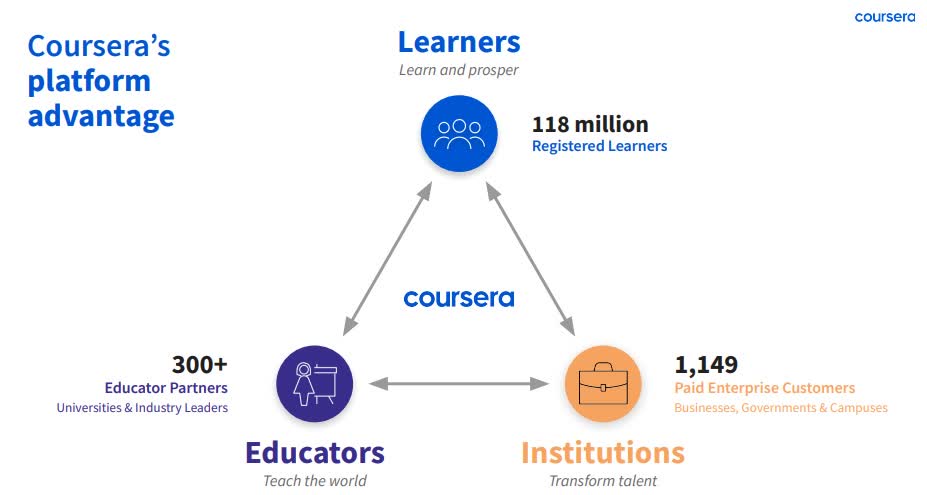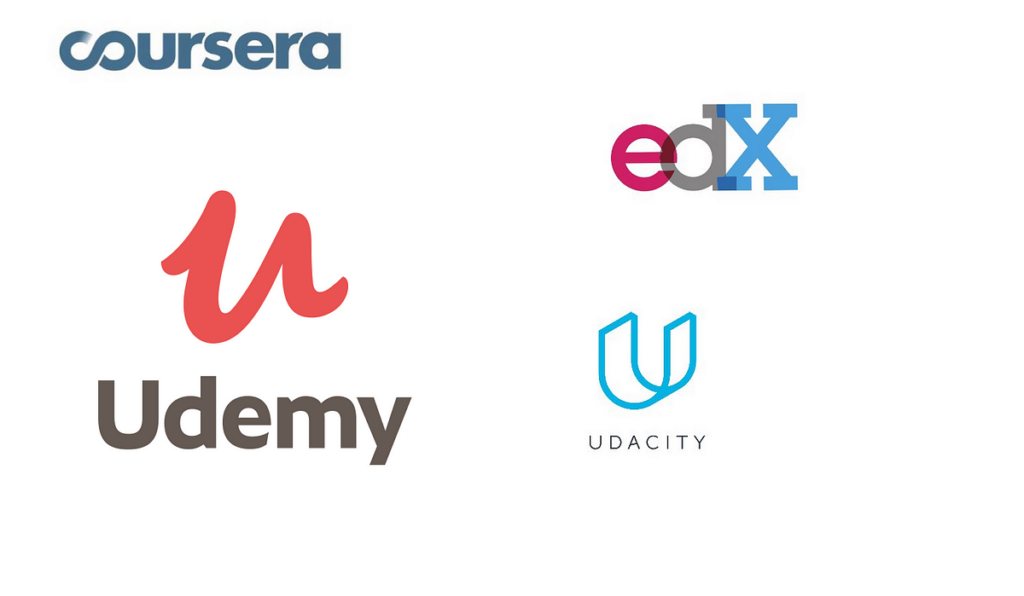Coursera: The Ultimate Online Learning Platform

In today’s digital age, online learning platforms have transformed the way we acquire knowledge and develop skills. One of the most popular platforms that has gained significant attention is Coursera. In this comprehensive review, we’ll dive deep into the features, pros, cons, and overall effectiveness of Coursera, helping you determine if it’s the right choice for your educational needs.
What is Coursera?
Coursera is an online learning platform offering a vast array of courses, specializations, professional certificates, and degree programs across various fields, including business, computer science, arts, and health. The platform collaborates with top universities and institutions like Stanford, University of California, Yale, and IBM to provide high-quality content. Coursera also caters to learners looking for flexible, affordable, and accessible education.
Key Features of Coursera
- Courses and Specializations: Coursera offers over 7,000 courses across different disciplines. These courses are designed by top universities and leading companies to provide learners with valuable knowledge and skills.
- Degree Programs: Coursera partners with universities to offer accredited online degree programs in areas like computer science, business, and public health.
- Certificates: Coursera provides certificates upon completing courses, which can help learners improve their resumes and advance in their careers.
- Flexible Learning: Coursera allows learners to study at their own pace, providing the flexibility to fit learning into busy schedules.
- Free and Paid Options: Many of Coursera’s courses are free to audit. But if learners wish to receive a certificate, they must pay for the course.
- Mobile App: Coursera offers a mobile app that enables users to learn on the go, making it easy to access courses from anywhere.
Pros of Using Coursera
Coursera’s popularity can be attributed to its many advantages. Let’s take a look at some of the standout features that make Coursera a top choice for learners.
1. High-Quality Content
One of the biggest selling points of Coursera is the quality of its courses. Since the platform collaborates with top-tier universities and industry experts, the content is often well-structured, up-to-date, and comprehensive. Learners get access to university-level education that they may not otherwise be able to attend due to geographical or financial constraints.
2. Wide Range of Courses
Coursera offers a vast selection of courses in diverse categories. Whether you’re looking to learn programming, marketing, data science, personal development, or even humanities, you can find a course that suits your interests. This variety allows learners to acquire knowledge in multiple disciplines, making Coursera an excellent option for those looking to expand their skillset.

3. Flexible Learning Schedule
Coursera’s flexible learning model allows students to learn at their own pace. This flexibility is ideal for individuals who may have full-time jobs or other commitments. With most courses, learners can set their own schedules, allowing them to balance their education with their personal and professional lives.
4. Interactive Learning Experience
Many courses on Coursera feature interactive elements such as quizzes, peer-reviewed assignments, and discussion forums. This encourages active participation, making the learning experience more engaging and ensuring that learners can test their knowledge regularly.
5. Certification and Professional Development
Coursera offers certificates for completing courses, which can be a valuable addition to your resume or LinkedIn profile. These certifications demonstrate your commitment to learning and professional development, which can enhance your job prospects. Coursera also offers professional certificates and specializations developed in partnership with leading companies like Google, IBM, and Microsoft. These certifications can help learners transition into a new career or improve their skills in their current roles.
6. Access to Degree Programs
In addition to individual courses and specializations, Coursera offers full degree programs in partnership with accredited universities. These degrees are recognized by employers and are an excellent option for learners seeking a formal education at an affordable price.
7. Affordable Learning
While some courses on Coursera come with a fee, many are free to audit, which is a major plus for learners who want to learn without breaking the bank. Even paid courses and specializations tend to be more affordable than traditional college courses, making Coursera an excellent choice for those seeking quality education on a budget.
Cons of Using Coursera
Despite its many benefits, Coursera does have some drawbacks that learners should consider before diving into the platform.
1. Expensive for Some Programs
While many courses on Coursera are free to audit, obtaining a certificate or enrolling in a specialization or degree program can be quite expensive. Degree programs can cost several thousand dollars, which may not be feasible for everyone. Additionally, the cost of certifications can add up if you’re taking multiple courses or specializations, making it less affordable for some users.
2. Limited Interaction with Instructors
Though Coursera offers discussion forums and peer-reviewed assignments, learners may find the level of interaction with instructors to be limited. In contrast to traditional in-person courses, the virtual classroom setup means you may not get the personalized attention or immediate feedback that you would in a physical classroom setting. This may not be ideal for learners who prefer more hands-on or individualized teaching.
3. Certificates Not Always Recognized by Employers
While Coursera certificates can be valuable for career advancement, they may not always hold the same weight as a degree or a certification from a recognized industry body. Some employers may not prioritize online certificates over formal qualifications, especially in highly competitive fields or professions that require specialized credentials.
4. Time-Consuming
Some Coursera courses and specializations can be quite demanding, requiring a significant time commitment to complete. While the flexibility is an advantage for many, some learners may find it difficult to keep up with the pace, especially when balancing other responsibilities. The workload can vary greatly depending on the course or program, with some requiring hours of study each week.
5. Variable Quality Across Courses
Although many Coursera courses are of exceptional quality, the platform is vast, and the quality of courses can vary. Some courses may be poorly designed, lack engagement, or have outdated content. As a learner, it can be difficult to gauge the quality of a course until you’re already enrolled, which may lead to a less-than-ideal learning experience.
How Does Coursera Compare to Other Online Learning Platforms?

Coursera is one of many online learning platforms available today. How does it compare to others like Udemy, edX, and LinkedIn Learning?
- Udemy: Udemy offers a vast range of courses across various subjects, similar to Coursera. However, the quality of Udemy courses can be inconsistent, as anyone can create and sell a course. Coursera, on the other hand, partners with top universities and institutions, which typically guarantees higher-quality content.
- edX: edX, like Coursera, offers university-level courses, many of which are free to audit. However, edX focuses more on academic and professional development courses, while Coursera also includes more hands-on learning and career-oriented specializations.
- LinkedIn Learning: LinkedIn Learning offers professional development courses and skills training, but Coursera’s range of university-backed degree programs and certifications may make it a more comprehensive option for learners seeking formal qualifications.
- Skillshare: Skillshare offers a wide variety of online courses and resources. Primarily focused on creative fields, business skills, and personal development.
Is Coursera Worth It?
Whether Coursera is worth it depends largely on your learning goals. If you’re looking for a wide selection of high-quality courses and professional development opportunities from renowned universities and industry leaders, Coursera is an excellent choice. It’s particularly beneficial for those who need flexibility in their learning schedule, as it allows you to learn at your own pace. Additionally, the certifications and professional programs can help enhance your resume and improve career prospects.
However, if cost is a major concern or if you require personalized, interactive feedback from instructors, you might want to explore other platforms that better align with your needs. It’s also important to note that while Coursera’s certificates are valuable, they may not hold the same weight as traditional degrees or certifications in certain industries.
Final Thoughts
Coursera offers a rich selection of online courses, degrees, and certifications designed for learners who want to upskill or explore new fields of interest. Its partnerships with prestigious universities and top companies ensure high-quality content, and its flexibility makes it an ideal choice for busy professionals and lifelong learners. However, its cost, limited interaction with instructors, and variable course quality can be drawbacks depending on your needs.
If you’re serious about expanding your knowledge and improving your career prospects, Coursera is undoubtedly one of the best platforms available. Just make sure to carefully consider your goals and budget before diving in.
